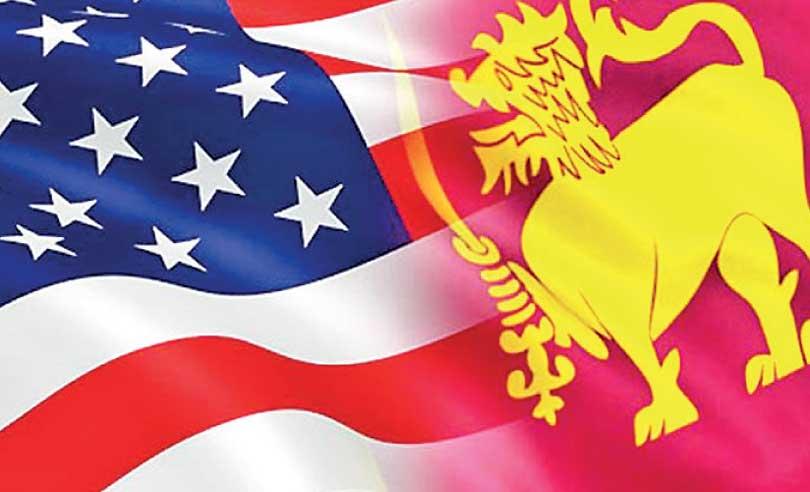Reply To:
Name - Reply Comment
Last Updated : 2024-04-23 22:35:00

 With the American Millennium Challenge Corporation Compact (MCC), getting into hot water in Sri Lanka, Nepal and some countries in Africa, what is apparent is that one size will not fit all.
With the American Millennium Challenge Corporation Compact (MCC), getting into hot water in Sri Lanka, Nepal and some countries in Africa, what is apparent is that one size will not fit all.
Each country has its own political, social, and economic concerns and historical experience shaping its mindset. The aid programme will therefore have to be tailor-made to suit each country.
That the MCC is a grant and not a loan is a major plus but it still will not be accepted if the recipient countries see strings attached to it and perceptions of “strings” vary from country to country.
 The Sinhala version of the final report of the Sri Lanka experts’ committee on the MCC Compact, which has been put on the website to get public reactions, has apparently suggested that the government should not sign the Compact without amending the “intrusive” clauses.According to Dr. Palitha Kohonna, a former Lankan Foreign Secretary and Lanka’s Permanent Representative to the UN, the objectionable “intrusive” clauses were: (1)the substitution of Sri Lankan law by international law and (2) the special privileges and extensive immunities granted to US personnel under the MCC compact. The Chairman of the panel, Dr. Lalithasiri Gunaruwan, had himself said that some of the clauses violated the Lankan constitution.
The Sinhala version of the final report of the Sri Lanka experts’ committee on the MCC Compact, which has been put on the website to get public reactions, has apparently suggested that the government should not sign the Compact without amending the “intrusive” clauses.According to Dr. Palitha Kohonna, a former Lankan Foreign Secretary and Lanka’s Permanent Representative to the UN, the objectionable “intrusive” clauses were: (1)the substitution of Sri Lankan law by international law and (2) the special privileges and extensive immunities granted to US personnel under the MCC compact. The Chairman of the panel, Dr. Lalithasiri Gunaruwan, had himself said that some of the clauses violated the Lankan constitution.
The report noted that the details of the MCC compact, on the table for years, were never made public for any meaningful discussion to take place. While acknowledging that governments have the right to enter into agreements with other countries,the panel said that there are some agreements which may impinge on the laws, sovereignty and constitution of Sri Lanka. In such cases, governments should seek the approval of parliament. Such pacts should also be open to any citizen’s inspection under the Right of Information (RTI) Act. If necessary, RTI regulations should be changed to allow it. Fortunately, the MCC Compact requires parliamentary sanction.
Dr. Kohonna insists that the MCC serves America’s geo-political agenda. He recalled that the MCC had pulled out of Sri Lanka in 2008 on political (human rights) grounds. According to a piece in www.grain.com the US could terminate the Compact if its stringent conditions are not adhered to, or if it no longer suits its political interest.
Contours of the compact
Sri Lanka has been promised a grant (not a loan) of US$ 480 million under the MCC compact, 70% of which will be for the improvement of transportation and the rest for preparing a land registry.The purpose of the land project is to increase the availability of information on private land and under-utilized State lands. In 1998, the Lankan parliament passed the Land Titles Act to convert the outdated land deed system to a land titles system. The current land deed system requires decades of land deeds to prove ownership. This has led to long drawn out litigation over ownership.
However, the 1998 law was only partially implemented because of financial constraints. In 2007, Mahinda Rajapaksa regime re-started the ‘Bim Saviya’ project. But again, work could not go beyond Colombo district and a few other areas. The MCC grant is to go into mapping government land, identifying utilized and un-utilized government lands, and creating a register of government lands. It is pointed out that 85% of all land in Sri Lanka is owned by the government, but the government does not have a central registry of this land. “Most departments have no idea what land it owns. This means that land is heavily under-utilized. Land available for agriculture or industry is not used appropriately. This new land registry will allow for the government to know what it owns and where,”a source said.
But leftist leader Vasudeva Nanayakkara fears that accepting a big grant of US$ 480 million will put Lanka under a moral obligation to accept US demands. Nationalists like Udaya Gammanpila would like land registration work to be done by the government without direct foreign involvement. He fears that the MCC will be used to grab land for foreign investments as it happened in Africa. According to www.grain.com land projects in Mali, Ghana, Mozambique and Benin make it clear that the MCC has played a key role in commodifying Africa’s farmlands and opening them up to US agribusiness.
US denial
In Sri Lanka’s case, the US has officially denied that it has any plan to buy released land or that it is eyeing land on the proposed Colombo-Trincomalee Economic Corridor, a project which Lankan nationalists oppose. Perhaps they think that the US is eying Trincomalee.
Jenner Edelman, Resident Country Director for MCC in Sri Lanka, addressing a Foreign Policy Round Table, on September 24, 2019 at the Lakshman Kadirgamar Institute in Colombo, said that there is no railway or transportation infrastructure project of any kind from Colombo to Trincomalee in the MCC grant; nor is there any mention of this conceptual corridor in the grant agreement. The so-called Colombo-Trincomalee Economic Corridor is a high-level conceptualisation of the Government of Sri Lanka’s plans to create several proposed economic or development corridors by 2050, she said.
Edelman said that MCC projects will not be implemented by the MCC as such, but overseen by a Lankan Board of Directors, comprising senior government officials as well as private sector and civil society representatives. It will be handled by a management unit of around 65 Lankan professionals. By necessity, some equipment and technical expertise required for the projects will come from abroad as it may not be available in Sri Lanka. However, there is no requirement to ‘buy American.’ There will be opportunities for local firms to win contracts.
It was pointed out that woven into the MCC scheme are modern principles of organisation such as rationality, transparency and accountability. By learning to abide by these principles of good governance, Lankan personnel would be able to replicate them in other spheres of the administration. In the long run, MCC projects will help tone up Lankan administration which needs to be modernised if the country is to be a commercial ‘hub’ of South Asia and the Indian Ocean Region.
All MCC projects must be based on correct data and analytical rigour. Such rigour has to be applied to resource allocation, project design, and results measurement. Lastly, transparency and accountability must be embedded in all aspects of the partnership—before, during, and after the Compact period. Daily Express (November 7, 2109) quoting a US Embassy statement of November 2019 to say that projects under the five-year US$ 480 million grant will benefit at least 11 million (or 54% of) Sri Lankans. Of the total of US$ 480 million, US$ 350 million will go into the transport project with an estimated Economic Rate of Return (ERR) of 19%.
“The transport project seeks to increase the relative efficiency and capacity of urban and provincial transport infrastructure in the Western, Central, Sabragamuwa and Uva Provinces. It will upgrade physical roadway networks, modernize traffic systems, and introduce policy and regulatory reforms.”
“The US$ 67 million land project has an estimated Economic Rate of Return of 26% and aims to expand and improve existing government initiatives to increase the availability of spatial data and land rights information. The project will initially focus on districts in the Central, North-Western, North-Central and Eastern provinces,” the US Statement said.
The MCC grant may not be available for much longer as Sri Lanka had recently graduated to upper-middle income status, the US has pointed out.
The Gotabaya Rajapaksa government will take a decision after securing public opinion and negotiating with the US on any change it may want. A final draft pact will then be taken to the cabinet and parliament for their approval.

Add comment
Comments will be edited (grammar, spelling and slang) and authorized at the discretion of Daily Mirror online. The website also has the right not to publish selected comments.
Reply To:
Name - Reply Comment
On March 26, a couple arriving from Thailand was arrested with 88 live animal
According to villagers from Naula-Moragolla out of 105 families 80 can afford
Is the situation in Sri Lanka so grim that locals harbour hope that they coul
A recent post on social media revealed that three purple-faced langurs near t